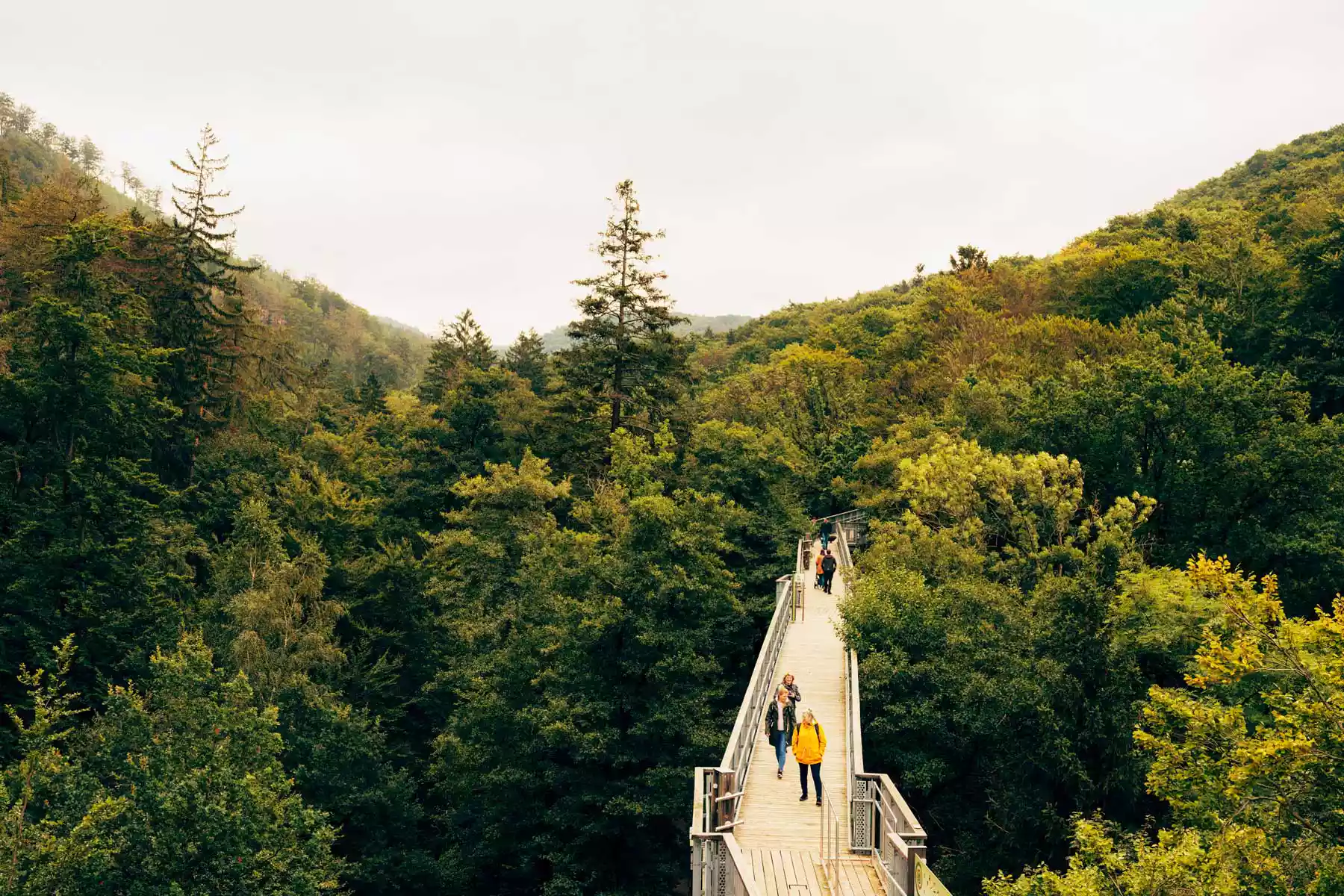Summary
Exploring Germany’s Enchanted Forests
Germany’s legendary forests have been immortalized in fairy tales and operas for centuries. Embark on a fascinating road trip through the country’s national parks to experience the magic for yourself.
Goethe’s Journey Through the Harz
In the winter of 1777, renowned writer Johann Wolfgang von Goethe set off on horseback from his home in Weimar and traveled north to the splendid forests of the Harz region. This journey, undertaken as a means of healing after the loss of his sister, led him to the Brocken mountain—northern Germany’s highest peak at nearly 4,000 feet. The breathtaking snowy, wooded landscapes rejuvenated him, inspiring his poem “Harzreise im Winter.”
The essence of Goethe’s journey became a cultural touchstone, symbolizing Germany’s deep-rooted connection to its wilds. Unlike the meditative tradition of forest-bathing in Japan, Germans engage with the forest as a manifestation of their spirit. From Tacitus’s first-century description of the Germans in “Germania” to the enchanting tales of the Brothers Grimm, forests have consistently shaped German national identity.
The Harz National Park Experience
The rugged beauty of the Harz National Park invites visitors to immerse themselves in nature. In contrast to the industrial practices seen elsewhere, Germany has pledged to foster a sustainable relationship with its forests. Remarkably, one-third of the country comprises woodlands. While much of this area consists of timber-harvesting plantations, Germany ensures that more trees are planted than harvested.
:max_bytes(150000):strip_icc():format(webp)/robins-nest-treehouse-hotels-GERMANFORESTS0722-7b09fb3526c54665bf4793c02fc9d584.jpg)
Having lived in Germany for nearly two decades, I’ve traversed its forests extensively. Last summer, I embarked on a road trip to delve deeper into the country’s wilderness and understand the lessons it holds for the world.
While many regard the Black Forest as the birthplace of fairy tales, I discovered the Harz region is equally rich in history and lore. My family and I drove 2.5 hours from Berlin to visit a friend in the town of Hornburg, who rents out a quaint brick house near a fortified castle.
During our stay, we learned about the rich folklore surrounding the Brocken. Legends of witches and devils have captivated imaginations for centuries. Goethe himself referenced the Brocken in his play “Faust,” sparking the belief that the tale of Rapunzel’s tower may be nestled within this mesmerizing landscape.
Overnight Stays in Tree Houses
Our adventure continued along the Hexen-Steig, or “witch climb,” guided by Dieter Runge, a local folklore expert. This trail showcases the myths of the region as we hiked through enchanting landscapes. We spent the night at the Torfhaus Harzresort, a luxurious retreat comprised of cozy cabins nestled on the edge of Harz National Park. Although some areas of the forest had been affected by climate change and pest infestations, our accommodations remained lush and inviting.
Our journey took us to Kassel, where the Robins Nest Baumhaus Hotel offers unique tree house accommodations. Built around the trunks of towering trees, these whimsical lodgings provide an immersive experience with nature. Each tree house features rustic decor and is connected by rope bridges, inviting families to reconnect with the great outdoors.
:max_bytes(150000):strip_icc():format(webp)/bode-valley-goethes-way-GERMANFORESTS0622-eea839895a6b4ef28d410906e366f9be.jpg)
The Future of Germany’s Forests
As the environmental movement grows, Germany is re-evaluating its forestry practices. Recent reports indicate that more trees died in 2020 than in any year since monitoring began in 1984, highlighting the urgent need for sustainable practices. In our visit to the Eifel National Park, conservationist Peter Wohlleben emphasizes that mixing indigenous species can lead to healthier ecosystems.
Wohlleben, author of “The Hidden Life of Trees,” advocates for a holistic approach to forest management. He believes the best path forward is to minimize human interference and allow nature to thrive. His Waldakademie offers insightful programs designed to connect people with the forest and advocate for better stewardship of these vital green spaces.
As our trip to Germany’s forests came to a close, I reflected on how this journey mirrored Goethe’s own—filled with discovery and a deeper appreciation for the natural world. It was not merely a vacation, but a quest to reconnect with nature and gain wisdom from the land.
Where to Stay
Robins Nest Baumhaus Hotel: A charming collection of rustic tree houses—including unique structures like a geodesic sphere—located just outside Gertenbach. Doubles from $105.
Torfhaus Harzresort: Featuring cozy cabins with fireplaces on the edge of Harz National Park. Doubles from $108.
What to Do
Wohllebens Waldakademie: Engage in transformative experiences that bring visitors closer to Germany’s forest ecosystems through nature walks and educational programs.




